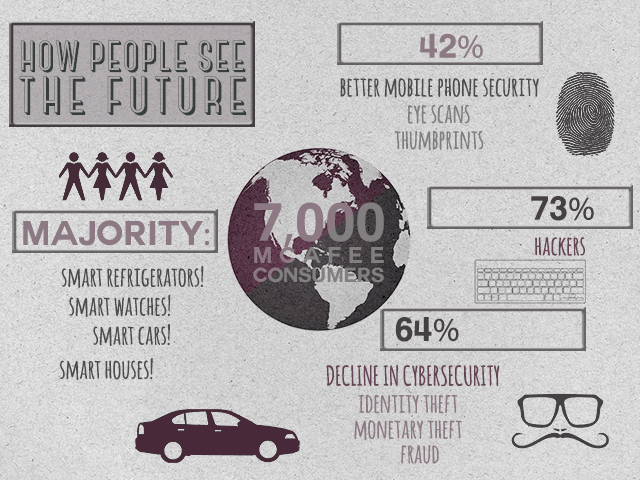Filtered by: Scitech
SciTech
Cybercrime in 2025: Where do you go when there's nowhere to hide?

Imagine a world where your house can talk to you, your car drives itself, and even your refrigerator knows what you eat.
According to a study conducted by cybersecurity company McAfee, all of these—and much more—may be possible by the year 2025.
Analyzing data from more than 7,000 consumers across twelve countries, the study provides insights into how people see the integration of technology with their everyday lives within eleven years.
However, the pervasiveness of technology also threatens to make us vulnerable in ways we can't imagine today.
Fearing the future
“People have just started to understand that their personal data is not some ethereal thing,” said Brian Johnson, Intel futurist. “They haven’t quite figured out what’s appropriate for others to know about that data. For instance, we don’t blurt out our credit card information when we walk into a room. Why would we want our data do that online?”
Moreover, sixty-four percent of consumers are worried about the state of cybersecurity eleven years from now, the biggest concerns being identity and monetary theft, and fraud. Seventy-three percent are afraid that their families could become victims of hackers within the next decade.
Forty-two percent of consumers expect eye scans and thumbprints to serve as mobile phone security. Most of the Japanese and Indian respondents believe that the Internet will be more private by 2025.


Rethinking public privacy
"By revealing a bit of how consumers envision the future of technology in their lives, we hope the study encourages industry players to always consider consumers’ digital safety as they make more exciting developments to their products and services," said David Freer, Vice President, Consumer, APAC, McAfee.
"As concerns about security rise, we will likely shift in the ways in which we provide authentication," said Ross Dawson, scientist and author.
“This may include using unique biometric information, potentially including our fingerprints, faces, voices, eyes, or even thought waves.” — Bea Montenegro/TJD, GMA News
More Videos
Most Popular




